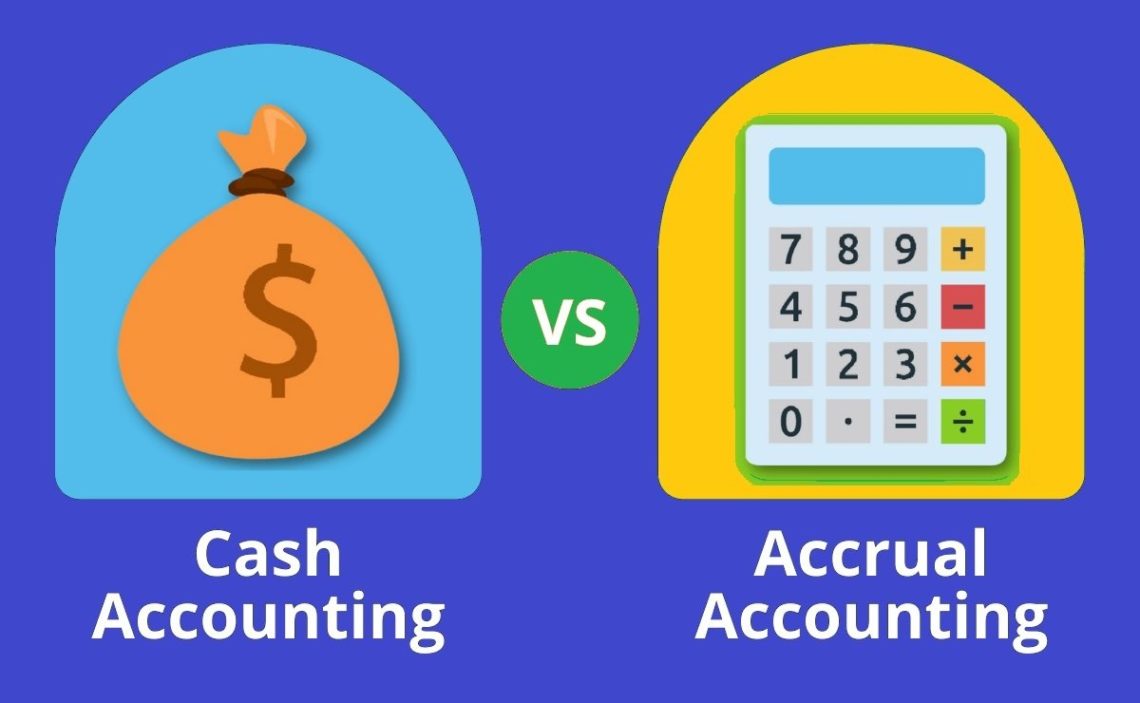When creating a business, one of the most important aspects to consider is the management of the monetary movements and transactions within the company, so it is necessary to investigate which type of measurement (Cash or Accrual Accounting) is appropriate for your small business.
Cash and accrual accounting are accounting methods used within finance to keep track of the cash receipts and disbursements, payments, and receipts that large and small multinational companies handle.
What is cash accounting?
Cash accounting is a simple way to understand how cash flows in and out of the company. This process is basic and can be implemented by inexperienced people with no technical knowledge of accounting, making it ideal for small businesses and entrepreneurs.
This method of accounting is based on cash receipts and disbursements, which are those recognized when money is paid or returned. Because it is an easier way to manage, accounts receivable, current assets and liabilities, and accounts receivable are not included.
Investments are considered expenses until they bear fruit as cash. On the other hand, any expense or sale will not appear in the statements until the transaction is carried out.
What are the Advantages of Cash Accounting
Cash accounting has several benefits for companies that choose this method.
- Ease of use: Only sales need to be recorded in a notebook to keep track of cash receipts and disbursements for small businesses, entrepreneurs, and sole proprietors.
- Cash management: Cash flow can give a more graphic picture of the company’s financial information.
- Tax Benefit: Decrease income or rush cash expenditures to reduce tax liabilities for some time legally.
What are the Disadvantages of Cash Accounting?
Just like everything else, cash accounting also has disadvantages, which are unsuitable for every company and business.
- Incomplete and unreliable reporting: The system used by the owner is manipulable so that profits can be generated by not paying the corresponding fees for different taxes.
- Inventory as an expense: Inventory becomes an asset when sold for cash, so it can be a significant expense for companies that have had the same list for a long time or whose capital is idle.

What is Accrual Accounting?
Accrual accounting is the account in which different money transactions are recorded when the operation is carried out, even if the seller obtains the money in the future, i.e., revenues are recognized when the products or services are delivered.
On the other hand, expenses are recorded as soon as the transaction is carried out and take the same time to be incurred, allowing an evaluation and report on the company’s finances to be made. This form of accounting is used mostly by large businesses and companies.
For example, if a person is hired to fix a building, he will be paid when his work is completed, regardless of whether the customer paid in advance. It is also true for the construction company’s expenses.
What are the disadvantages of accrual accounting?
Choosing accrual accounting also has its cons. One of the most important is that you need someone skilled in accounting software to implement it in your company and, on the other hand, someone who knows how to read all the recorded data.
So, if you opt for accrual accounting, you will have to hire professional accountants who know how to handle the computerized system. Another disadvantage of accrual accounting is that electronic payment methods or credit cards are used more, so the cash flow becomes a problem, as this method is not the most used on this occasion.
Main features of Cash vs. Accrual Accounting for Small Business
In conclusion, if you are unsure which accounting method to use, you can compare cash vs. Accrual Accounting for small businesses and choose the one that best suits you and your business needs.
You can easily compare them in the following summary descriptions to select the most viable option for your business or company.
Main features of Cash Accounting
- Easy to use. No technical knowledge or professional help is needed.
- Not recognized by investors and banks.
- Perfect for sole proprietors, freelancers, contractors, and self-employed consultants.
- Cash-out payment is a recognized expense.
- Cash receipt is recognized income.
- The cash received has tax liabilities.
- A financial performance report is made based on cash inflow and outflow.
Main features of Accrual Accounting
- Specific knowledge and professional advice are required.
- Recognized by investors and banks and complies with U.S. GAAP principles.
- Requested for companies that have personnel and assets with inventories.
- Regardless of the actual payment, the costs incurred are considered recognized expenses.
- The delivery of goods and services is recognized income.
- Tax obligations until before the money is deposited in the account.
- A financial performance report is based on accounts payable, receivable, depreciation, and inventory.
References
- “Accrual Accounting | Office of the University Controller.” Home | Office of the University Controller, https://controller.iu.edu/compliance/fiscal-officer/accounting-standards/closing-procedures/closing-standards/accruals.
- “Cash vs. Accrual Accounting: What’s Best for Your Small Business? – Article.” QuickBooks®: Official Site | Smart Tools. Better Business., QuickBooks, 10 Jan. 2022, https://quickbooks.intuit.com/r/bookkeeping/cash-vs-accrual-accounting-whats-best-small-business/.
- “Cash vs. Accrual Accounting: Which Is Best for Your Business?” Shared Economy Tax, 31 Aug. 2022, https://sharedeconomycpa.com/blog/cash-vs-accrual-accounting/.
- “What Is Cash Accounting? | Definition | Xero US.” Xero, https://www.xero.com/us/glossary/cash-accounting/.
Journalist and photojournalist specializing in content writing on different financial topics. She has four years of experience on websites, five years on digital media as a social communicator, and has studied English translator’s degree.
Thanks to her knowledge of English and Spanish, she can offer quality content to people who speak these languages. She has published several articles for websites related to financial and other general interest issues.


